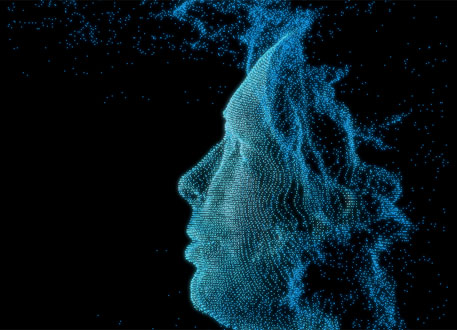
I have to say, when it comes to the use of sociable web media as a marketing tool – this is, afterall, what the term “web 2.0” has come to imply – as well as a generator of participation and creativity, Radiohead is doing just fine. Releasing their ‘In Rainbows’ as a digital download that customers could order for whatever price they saw fit, was quite a stunt (that got them quite a bit of media attention), and although that service was temporarely, and they announced that it’s improbable that they will publish their music in the same way again, they’re still eager to experiment with the dynamics of network culture. Clearly, they’re not inventing the wheel here and obviously, being one of the most popular international music b(r)ands, they’re in a comfortable position to “experiment” with alternative distribution and marketing models, but still, as far as their trust in “user empowerment” goes, they have become the posterboys of the techno-libertarianism movement (on a broader level, the hypocritical agenda behind “open” and “free” has to be seriously discussed. The ideology that Free gurus such as Lawrence Lessig and Joi Ito are spreading is valuable indeed, but what’s lacking are sustainable income sources for cultural producers beyond the current copyright regimes. We might be excited by the idea of joining the gift economy, but we’re still paying the bills, and we know someone, somewhere else in the food chain, is cashing in). The music video contest that the band organised in cooperation with the cartoon networking site aniBoom, turned out to be quite a succes, judging by the quality of the work of the finalists (10 semi-finalists will each receive $1,000 to create a one minute long video clip. One grand prize winner will receive $10,000 to create a full length video), and the remix contest, in which fans were given the opportunity to buy isolated “stems” (vocals, drums, etc., for 99cents on itunes) from the track “Nude” and create a remix of their own, generated 2252 submissions on the project site Radioheadremix.com (deadline was May 2008, the remixes were voted on by the public). The purchase of the “stems” turned out to be widespread enough to land “Nude” in the charts. Pitchfork’s Mark Richardson has written a nice analysis of the remixes, but I particularly like the remix (not listed on the project site) by James Houston, A Glasgow School of Art student. It’s based on a collection of old redundant hardware (a Sinclair ZX Spectrum, an Epson LX-81 Dot Matrix Printer, a HP Scanjet 3c, and a Hard Drive array), “placed in a situation where they’re trying their best to do something that they’re not exactly designed to do, and not quite getting there”. It has become a YouTube sensation in the meantime, especially after is was mentioned on Radiohead’s blog.
Now they’re continuing their experiments by encouraging remixing of their latest music video ‘House of Cards’ (see below). The video is shot using only 3D scanning devices (one a close-proximity 3D scanner from Geometric Informatics, another a multiple-laser array for the “exterior scenes” rotating in a 360-degree pattern.) in place of cameras, resulting in data that was programmed with the open-source tool Processing (technical director was Aaron Koblin). The source code and the raw data (NOT the music though) is available for free (only for a few months, after that you have to pay!), under a Creative Commons Attribution-Noncommercial-Share Alike 3.0 License on the Google Code site. Part of the power of data visualization is that you can make it look like whatever you want (using Blender, for example), so it’ll be interesting to see how this will evolve. Check out the YouTube group that has been set up.